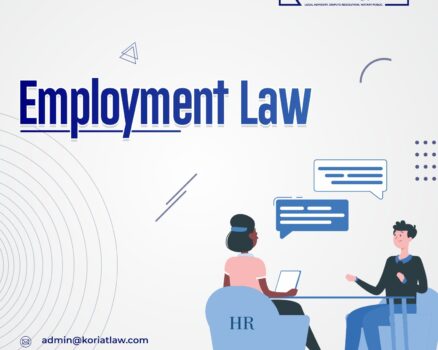
In the course of our engagement with clients, we have documented some of the frequently asked questions on money lender licensing process in Nigeria, which we consider can be a useful guide for any interested investors in the country’s consumer lending sector.
Below are our responses to the questions for anyone who desires more information of the licensing requirements and procedure. Please read more information about How to Set up a Money Lender Company in Nigeria here.
1. What State in Nigeria would you recommend for setting up a money lender business?
Nigeria is a Federation of 36 States and a Federal Capital Territory, Abuja. Each Federating Unit has its licensing and regulatory authority in addition to the regulation by the Federal Competition and Consumer Protection Commission (“FCCPC”).
In Nigeria, Lagos State is highly recommended because of the huge population and facilities. The Federal Capital Territory-Abuja, Anambra State and Oyo State are also very thriving locations for money lender businesses in view of their respective populations, access to mobile telephone and the internet, amongst other considerations.
For instance, the National Bureau of Statics Report on Capital Importation Q1 2022 shows that out of the total of US$1,573.14 Million imported into Nigeria for investment, Lagos State recorded the lion share of US$1,119.44 Million followed by Abuja which had US$446.81 Million. Anambra State and Oyo State recorded US$4.15 Million and US$2.00 Million in the first quarter of 2022.
Lagos State is nonetheless one of the most preferred location for digital lending business in Nigeria. Apart from being host to major tech companies like Google, Facebook and Microsoft, all the commercial banks and payment solution companies, credit bureaux and other necessary stakeholders that a digital lending company would need to work with are located in Lagos State.
2. Can we obtain licence from Lagos State and lend in another State?
No. The operations of a money lender company must be confined to the territorial geography of the State of licence unless the lending company has a federal licence like Finance Company Licence or Micro-finance Bank Licence (National Licence) of the Central Bank of Nigeria. Please note that it is an offence to engage in money lending business in any State of Nigeria without obtaining the licence of that State or a National Micro-Finance Bank licence.
Also, a recovery of debt is legally impossible in any State outside the lender’s State of licence unless the money lender company or its recovery agent is able to show the Court or Police that they have a licence issued by the authority of the Central Bank of Nigeria or licence from the State where recovery is being pursued.
3. What are the differences between Lagos and Abuja licensing processes?
| Lagos | Abuja |
| Lagos licence requires a verifiable office which the regulator will inspect before granting the licence | Abuja allows the applicant to use a virtual office address. No inspection will be carried out before granting licence. |
| Lagos State regulator usually conduct interview for the directors before granting licence. | Abuja does not interview shareholders or directors before granting licence. |
| Lagos State requires three (3) year tax clearance certificate of the company’s directors as part of mandatory requirements for granting money lender licence. | Abuja does not require any tax clearance certificate of the directors or before granting licence. |
| Lagos licensing process takes about two (2) months or more before completion. | Abuja licensing process takes one (1) month or less to complete. |
| The licensing procedure in Lagos State is divided into two phases: first, the Magistrate’s Court grants the moneylender certificate, whilst, subsequently, the Ministry of Home Affairs grants the moneylender licence. | In Abuja, the licensing authority for both money lender certificate and licence is the Magistrate’s Court of Abuja. |
| The cost for Lagos licence is higher. | The cost for Abuja licence is relatively cheaper. |
4. In the process for setting up a money lender company in Nigeria, what are the possible timelines or items that will be delivered by each milestone?
| No | Items to be Delivered | Timeline |
| 1 | Company registration Certificate, Status Report and Memorandum and Articles of Association duly certified by the Corporate Affairs Commission (“CAC”) | About 24 hours after a proposed name of the company has been approved by the CAC. |
| 2 | Police Report certifying that the Directors have no criminal records | About Seven (7) days after the directors have filled and returned the filled biometric forms to us. |
| 3 | Tax Registration and Company Seal of the Company | About Seven (7) working days after company registration. |
| 4 | Opening of Bank account of the Company | About 48 hours after company registration. |
| 5 | Grant of Money Lender Certificate and Licence (Abuja) | Seven (7) days after tax registration and bank account opening. |
| 6 | Grant of Money Lender Certificate by Magistrate’s Court (Lagos State) | 7 to 10 days after submission of application |
| 7 | Scheduled inspection of the company’s physical address by the Lagos State licensing authority (Lagos) | 2 to 3 weeks after submission of application |
| 8 | Grant of Money Lender Licence by the Lagos State licensing authority (Lagos) | 2 to 3 weeks after scheduled inspection of the company’s office. Licence is granted subject to satisfactory inspection/interview but not later than one (1) month. |
Please read more information about How to Set up a Money Lender Company in Nigeria here.
5. Where can the company registration and license registration be found on the official website?
The CAC is the government registry for all registered companies and the proof of a company registration can be found here: https://search.cac.gov.ng/home.
The licensing authority for money lender business is the right place to verify the authenticity of a money lender licence.
For instance, in Lagos State, the licensing authority is the Ministry of Home Affairs and Tourism. However, the genuineness of a money lender licence in Abuja can be verified at the Magistrate Court Abuja.
6. Can the Shareholder, director or secretary can be foreigners?
The shareholder and directors can be foreigners but it is important to include at least one (1) local director who has a Bank Verification Number (BVN) otherwise it may be difficult to open a bank account for the company. Please note that there are foreign locations where BVN registration can be done. See https://oisservices.com/bvn.php
A foreigner cannot be a company secretary under Nigerian law. A company secretary must be a Nigerian lawyer, chartered accountant or secretary/administrator. A foreign lawyer is not a Nigerian lawyer unless he or she obtains qualification to practice law in Nigeria.
7. Where Shareholders are foreigners, can the mobile phone or email address at the time of company registration belong to one of the shareholders, directors or company secretary?
Yes. However, it is advisable that as soon as the foreign shareholders are able to procure a phone number and email address, the company’s details should be changed at the CAC.
8. What can a foreigner do to control a company formed through a Nigerian?
Where a company is formed through a Nigerian and the foreign promoter is not listed as shareholder, the non-Nigerian promoter can control a Nigerian company through a trust deed or agency contract with relevant clauses to show that the local shareholders/directors are holding the shares of and operating the company for the ultimate benefit of the foreigner and that the local shareholders/directors shall not take any decision in the company except with prior approval of the foreign company.
Also, it is important that the details of the foreign promoter are registered with the CAC as Person of Significant Control (“PSC”) over the company. A PSC is a person (whether being listed as a shareholder or not but) has up to 5% shares and above in a Nigerian company.
9. Is there a requirement for the company’s cash balance to reflect a specific amount?
No. There is no requirement for the applicant company to show its account balances. The only related requirement is that the company must obtain a reference letter from its bankers showing that it has an active bank account with a Nigerian bank.
In fact, during the interview with the regulators, questions about the (proposed) source of the company’s finances will be asked to establish that the business is not a front for money laundering actors. In our experience, some of our clients were licensed despite the fact that their business was set up with a view to getting a loan as a start-up capital.
It may however boost the profile and capacity of the company if the company’s bank balance reflects that the company has substantial capital to start the money lending business.
10. When does a digital lending company need to start processing license renewal?
A money lender licence expire by 31st of December of the year of issuance and must be renewed in January of every year.
Please read more information about How to Set up a Money Lender Company in Nigeria here.
********************************************************
About KORIAT & CO.
We are a growing commercial law firm in Lagos and Abuja. The above article is not legal advice and does not automatically make our readers our clients unless they specifically instruct us to act or represent them in any way.
Please contact Koriat & Co. through admin@koriatlaw.com or 09067842241 if you require additional information about or assistance in making the application for a money lender’s licence.




